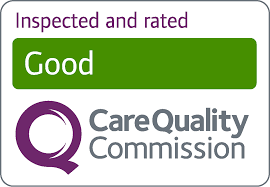Understanding How to Fund your Care
Needing care is not always something we can plan for, many of us hope to never have to think about needing additional care as we age or fall ill or frailer, but it can often become a necessity for us or our family and it’s understandable, we would want the best care in place.
While many would hope to be able to provide care for a loved one, it can be incredibly demanding and difficult to manage it alone – especially around work and family. Choosing professional home care can be a lifeline or respite.
However, when it comes to considering and perusing professional care, one of the most daunting things for many is how to pay for it. Fortunately, there are many options to choose from to help with the cost of care and different ways it can be funded – we’ve provided a guide below to some of the most common options.
Privately Funded Care
Care can be funded privately through a number of methods such as long-term care insurance, equity release or annuity-based care plans. By consulting an independent financial adviser via the Financial Services Authority – you can get some tailored unbiased advice on what is best for your situation.
Social Care Funding
In some cases, you could be eligible for social care funding through your local council. It’s usually means tested so you may need to pay a contribution. Your local authority will likely carry out a financial assessment and then confirm how much of the care they can fund.
Get In TouchTypes of care

Live-in care
From general housekeeping, meal preparation and companionship through to personal care and more complex needs, Novus Care can help.
Learn more about Live-in care

Visiting care
From general housekeeping, meal preparation and companionship through to personal care and more complex needs, Novus Care can help.
Learn more about Live-in care

Dementia care
From general housekeeping, meal preparation and companionship through to personal care and more complex needs, Novus Care can help.
Learn more about Live-in care

Direct payments
Your local authority may be able to provide you with the money to organise your own home care if you have been assessed as suitable, this is called Direct Payments. The money has to be used to arrange care to meet the needs of the individual as recommended by their social worker. It is likely you will need to agree with the social worker what the direct payment will be spent on before a commitment is made.
NHS continuing care funding
The NHS Continuing Care funding is free to people who qualify under the requirements of their local health authority or social services. It is designed for people who have health needs that require total responsibility of the NHS.
Care provided in someone’s own home can be funded by the NHS for personal health needs such as medical and mobility equipment, adaptions to the home, living and accommodation. Your local NHS CCG should be able to advise you on if you are eligible.
Read MoreSelf-directed Support
If you have been declared eligible to receive community care under the Government Fair Access to Care Services Guidelines (FACS) you will be able to access public funding to help with care. Self-directed support enables people to look after their own care such as taking control of social care budgets, support and services for their needs. The Adult Social Care department of your local authority will carry out an assessment and will need to be informed what support you need to be able to live the way you want to. This can be done via a Self-Directed Support questionnaire.
Independent Living Funds
Provided by central government, this type of funding provides financial support to disabled people between the ages of 16-65 to enable them to live in the community instead of residential care. It does not take into consideration the client’s earnings or their partners, so it is still possible to work without losing funding towards care.
Receiving a Quote for Home Care
We provide affordable and efficient home care and will provide you with an honest and fair quote so you can make an informed decision about our care. From a guideline quote when you enquire to a detailed quote following a home care assessment – you will always know where you stand about the cost of our care and all the terms are clear with no hidden costs or long notice periods.
Self-directed Support
If you have been declared eligible to receive community care under the Government Fair Access to Care Services Guidelines (FACS) you will be able to access public funding to help with care. Self-directed support enables people to look after their own care such as taking control of social care budgets, support and services for their needs. The Adult Social Care department of your local authority will carry out an assessment and will need to be informed what support you need to be able to live the way you want to. This can be done via a Self-Directed Support questionnaire.
Independent Living Funds
Provided by central government, this type of funding provides financial support to disabled people between the ages of 16-65 to enable them to live in the community instead of residential care. It does not take into consideration the client’s earnings or their partners, so it is still possible to work without losing funding towards care.
Receiving a Quote for Home Care
We provide affordable and efficient home care and will provide you with an honest and fair quote so you can make an informed decision about our care. From a guideline quote when you enquire to a detailed quote following a home care assessment – you will always know where you stand about the cost of our care and all the terms are clear with no hidden costs or long notice periods.











